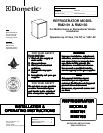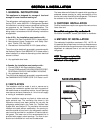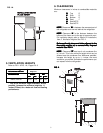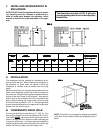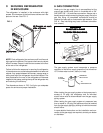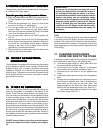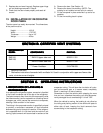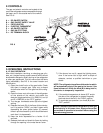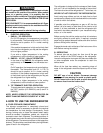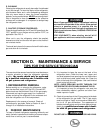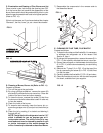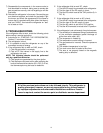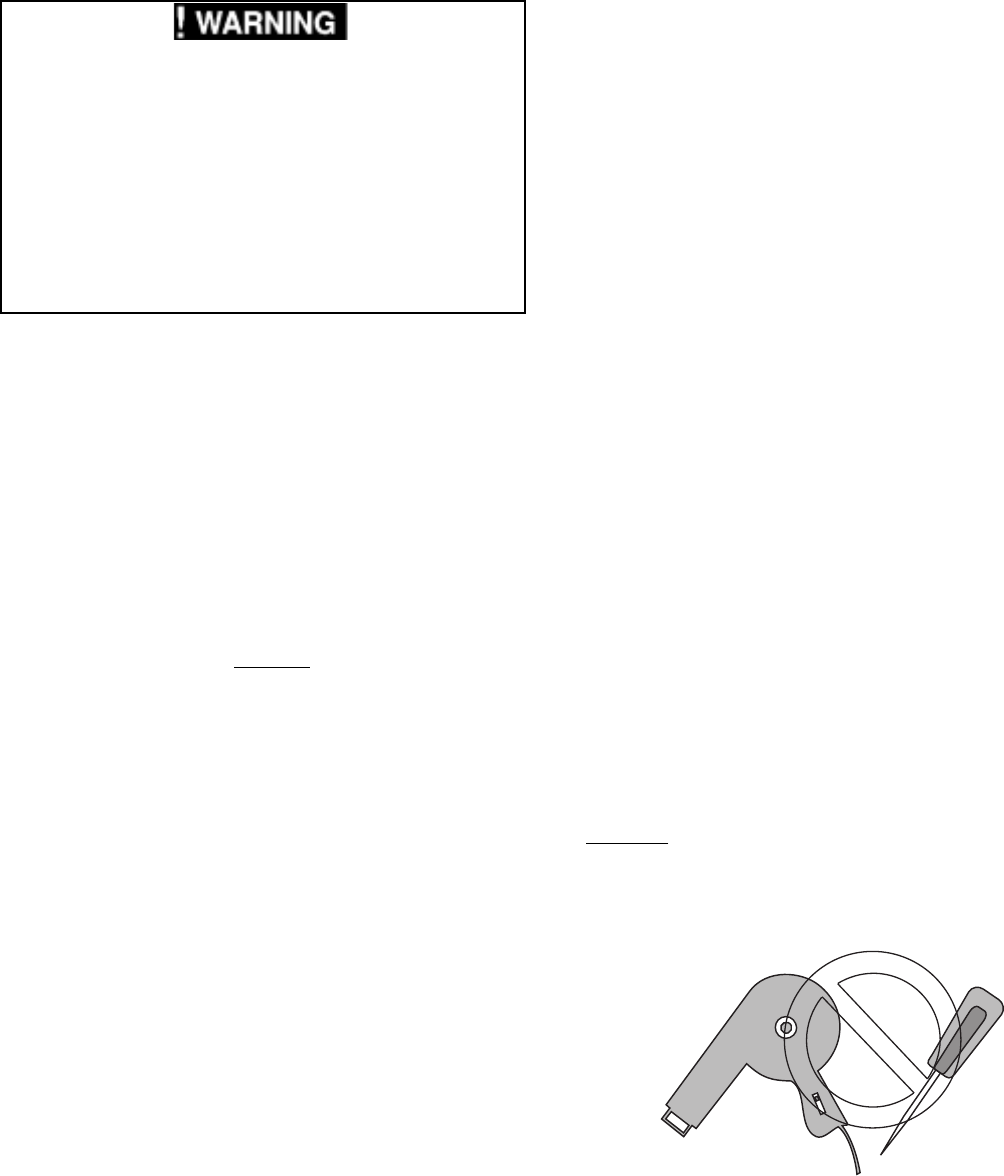
9
The refrigerator is designed for the storage of fresh foods,
milk, etc. It is not intended for the storage of frozen food.
The internal volume of the refrigerator is 1.7 cubic feet, net.
NEVER PUT HOT FOOD INTO THE REFRIGERATOR.
Avoid using large dishes and do not stack food or food
containers too closely as this interferes with the circulation
of cold air within the cabinet.
If possible, start the refrigerator on gas or AC the day
before it is to be used, to allow time for the interior to be
cooled. It is then preferable to load the refrigerator with
food which has been precooled in your household refrig-
erator, or in the market.
Before moving the vehicle, make sure that all containers
are tightly covered to avoid spills. If required, crumpled
paper may be packed between bottles and other items to
prevent shifting while traveling.
Engage the travel catch at the top of the front corner of the
door before moving the vehicle.
B. DEFROSTING
To defrost, take out any food, etc. then turn off the gas
valve or switch of the DC/AC supply to the refrigerator.
Leave the refrigerator door open and place a suitable dish
or other receptacle under the evaporator to catch the
defrost water.
When all the frost has melted, any remaining drops of
water in the refrigerator should be wiped up with a clean
cloth.
CAUTION
DO NOT use a hot air blower. Permanent damage
could result from warping the metal or plastic parts.
DO NOT use a knife or an ice pick, or other sharp tools
to remove frost from the freezer shelf.
Most LP gas appliances used in recreational vehicles
are vented to the outside of the vehicle. When parked
close to a gasoline pump, it is possible that the
gasoline fumes could enter this type of appliance and
ignite from the burner flame, CAUSING A FIRE OR AN
EXPLOSION.
FOR YOUR SAFETY, it is recommended that all LP gas
appliances which are vented to the outside should be
shut off when refueling.
The refrigerator must be shut off during refueling.
B. ELECTRIC OPERATION
1. RM2191: DC OPERATION
On 12V DC operation, the temperature is controlled
by a thermostat. The thermostat knob (D, in FIG. 8)
should be set to position 4–5 in normal working
conditions.
If the ambient temperature is high and/or fresh food
is put into the refrigerator you may set the refrigera-
tor to a higher position.
If you wish a higher temperature in the cooling
compartment, set the knob to a lower position.
2. RM2193: 12V DC / 120v AC OPERATION
In the case of the RM2193, the refrigerator works
continuously on DC operation (no thermostat con-
trol).
On AC operation, the temperature is controlled by a
thermostat. The thermostat knob (D, in FIG. 8)
should be set to position 4–5 in normal working
conditions. If the ambient temperature is high and/
or fresh food is put into the refrigerator you may set
the refrigerator to a higher setting.
If you wish a higher temperature in the cooling
compartment, set the knob to a lower position.
3. TO TERMINATE ELECTRIC OPERATION
To terminate electric operation, turn the switch/es to
the "OFF" position (A in RM2191) and (A and E in
RM2193).
NOTE: NEVER OPERATE THE REFRIGERATOR ON
MORE THAN ONE ENERGY SOURCE AT A TIME.
4. HOW TO USE THE REFRIGERATOR
A. FOOD STORAGE COMPARTMENT
The storage compartment is completely closed and
unventilated, which is necessary to maintain the required
low temperature for food storage. Consequently, foods
having a strong odor or those that absorb odors easily
should be covered. Vegetables, salads, etc. should be
covered to retain their crispness. The coldest positions in
the refrigerator are under the cooling fins and at the bottom
of the refrigerator. The warmer areas are on the upper door
shelves. This should be considered when placing different
types of food in the refrigerator.



